- Home
- Blake Pierce
Death in Florence Page 2
Death in Florence Read online
Page 2
With that, Diana’s stomach growled. She hadn’t eaten anything since a croissant in Paris, right before she’d boarded the train. She was starving.
“Thank you,” she said, taking her key card from the clerk. “I mean, grazie.”
“You’re very welcome. Enjoy your stay with us.”
Diana headed for the elevator, smiling. I’m sure I will. Now, time to freshen up and change before breakfast and touring the grounds.
She walked down a dark, travertine-tiled hallway until she found her room. Pushing open the heavy wooden door, she gasped. The room had a high ceiling, crossed with rafters, and the space was simply enormous, so much so that the canopied queen bed, draped in organza curtains, was practically dwarfed by its size. Sunshine spilled in through a massive, open bay window.
Crossing to it, Diana peered outside at the rolling hills, and the rows of grape plants, lined against the lush green valley, cut by a single dirt path. Off to the side was a crystal clear pool with waterfall, fashioned from river stone, surrounded by umbrellaed tables. The sky was blue and cloudless, and the air smelled of earth, honey, and fruit.
“I have to take a picture of this,” she said aloud, feeling in her purse for her phone. No, she wasn’t one for selfies, but this scene before her simply demanded it.
She dipped her hand in her enormous purse, coming up empty. Then she felt for her pockets, before she realized the travel outfit she was wearing didn’t have pockets.
She checked her purse again, more frantically now, the hair on her neck rising to full attention as she confirmed her suspicion.
No no no no no, her mind screamed as she looked around, helpless for some indication of where she could look next. But there was no other place. She’d used it on the train, in the taxi . . . hadn’t she? She couldn’t remember. Her mind spun with half-formed thoughts, and from these, one irrefutable fact rose above all others.
Her phone was gone.
CHAPTER TWO
Gone. Just gone.
Diana shuddered at the thought of her precious iPhone, in the hands of some thug who’d look at her photos and private information, intruding on her life. She had everything on that phone, her whole entire being. Maybe he’d even use it to commit crimes in her name and get her into just as much trouble as she’d been in in Paris.
And now, what was she going to do? As she stood in line in a busy electronics store, she ripped her thumbnail off in her anxiety and peered down at the ragged remnants of it. She needed to stop that.
Instinctively, for the thousandth time that hour, she reached into her purse for her phone.
Bzzzzz. Sorry.
Only now that it was missing did Diana realize what it had been to her. No, she wasn’t as attached to her phone as her children were, but over the years, it’d come to be her security blanket. It was especially so now, where she didn’t know the language or the landscape. Standing here, in a strange country, she felt farther away from the United States than ever. She shivered again, feeling exposed to attack. Naked.
It’d been a struggle just getting this far. When she’d first realized it was gone, she’d hurried downstairs, hoping to find it in the reception area. No such luck. Then she’d retraced her steps out to the curb, where the two valets helped her look for it. Nothing.
The clerk helped her make a call to her wireless provider, who explained that out of the country, there was nothing they could do to replace a lost cell phone. After a good amount of freaking out and, yes, a lot of gnashed teeth, the clerk offered to put her in a taxi to the nearest iPhone store, FastWeb Cellular, in downtown Florence.
Now, as she stood in line, cataloging everything that she’d be missing without her phone, her stomach sank more and more. Her contacts were gone. Sadly, she didn’t even know the phone numbers of her own daughters, since she was so used to speed-dialing them. She had no method of taking or keeping any photographs of the marvelous things she’d see—so she’d probably forget half of this trip. And forget about touring—without the opening and closing times of museums, she’d be a lost puppy. How would she be able to pick a restaurant without checking the menus online first? And without the hourly weather forecast . . . what if it rained?
Calm down, Diana. You’re five minutes away from buying a new cell phone. You can handle this momentary blip.
She stepped up to the counter. “Buongiorno. I’d like an iPhone.”
The man nodded and handed her a tablet. “Fill this out. You get in a week.”
“A week? But—”
“New iPhones are on backorder. Could be sooner. You give us number, we call when they come in, si?”
She filled out the form. “Is there a way I can get a phone to use right now?”
He looked at her like she was insane. “Not here. We all cleaned out. Try next door.”
After finishing there, she went to the next shop over. The place wasn’t exactly an Apple Store, something Diana had noticed the moment she’d stepped inside. Aside from that it didn’t appear to have any cases or displays with the latest gadgets, it also sold old appliances, like space heaters and box television sets. There was a partially bald cat sitting in the window, under a neon sign that said Elettronica. Diana had to wonder if the clerk had made a mistake. She hadn’t lost her toaster oven; she’d lost her phone.
As the person in line in front of her stepped away from the counter with a new-to-them electric kettle, Diana attacked it, a feverish heat flushing her face. “Hello, I, um—”
She winced when the old lady in the housecoat behind the counter stared at her, unamused. That was another thing. No phone, no easy translations.
Taking a breath, she tried again. “Ciao. I’m looking for . . .” She made her hands into binoculars, cupping them around her eyes. Then put a pinky and thumb to her cheek. “Phone?”
“Ah, telefono.”
The woman reached behind the counter and pulled out an old, rotary-dial phone from Diana’s youth, circa 1968.
“No. A cell phone? You know, newer?”
“Cellulare?” The woman nodded. “Si?”
“Yes. Right. Si? Do you have?”
Again, the woman nodded and shuffled into the back room. When she returned, the old lady was using the hem of her housecoat to polish something, lifting it up to bare her doughy white legs. When she set it on the counter, Diana winced.
It was an old flip phone, circa the turn of the century. Diana had had one of those . . . once. Back in the olden days, those and BlackBerries were high-tech.
At least it wasn’t the size of her forearm, but still . . . what kind of features did something like that have? The sinking feeling turned to outright nausea. This was bad. Really bad. “You don’t have anything newer?”
The woman stared at her, uncomprehending.
She didn’t have time for this. Besides, something was better than nothing. “Fine. Can you hook that up to my service so that I can get it to work?”
Again, the woman stared. Diana’s shoulders slumped, and she was ready to call it a day, when a voice in the back said, “I can.”
A younger man with a full head of dark hair and a tan came out of the back, picking up the phone. “You’re American, yes?”
She nodded as he looked her over, feeling herself blushing. He was probably about her height, a good six inches shorter than Evan, and yet he had the face of a movie star, the only signs of age a few creases at the corners of his eyes. Her breath caught.
“Lost your phone, eh?”
“Yes.”
He picked up the cell phone and inspected it. “You’ll need a SIM card from the carrier but I can get you set up. Usually, we don’t get people wanting new cell phones around here. Especially with FastWeb Cellular right down the street.”
“Oh—” She looked around. She knew she had to have been taken to the wrong place. As she wondered if it would be impolite to tell him no thanks, he spoke again.
“But you know what, I think these little babies have something special to the
m that the new phones don’t. People these days are too into their phones. They don’t look around to see what is going on.” He held up the flip phone. “This is just what it’s supposed to be. A phone. That’s all.”
Just what it’s supposed to be. Right. A phone. Not a lifeline.
She’d gone on this trip to assert her independence. To learn the ancient art of relying on oneself. What was so independent about being tethered to a piece of electronic equipment?
Besides, the man was right. She’d lived almost half her life without a cell phone, and life had been a lot different then. Freer. More fun. She remembered fondly the days of paper maps, of pulling over to the side of the road to chart a course with a highlighter. It was much more adventurous, exciting, heading out, not knowing every little thing about your destination.
Which was exactly what Diana had attempted to accomplish, first with her itinerary, and now with her phone.
As the man behind the counter worked on the phone, a little chill passed through her. Could she live without a smartphone, using one that was only good to put in the occasional call to her kids?
Maybe.
Was it possible? Well, she guessed she was about to find out.
The man handed her the phone. “You’re all set. You remember how to use one like this?”
She stared at it, remembering those days of the early 2000s, when she’d had one just like this. All she’d used it for was phone calls, usually meetings, on her drives into and out of New York City, before driving and talking on cell phones had been outlawed. Nobody texted back then, because texting took forever. Pictures were grainy and terrible. Really, a phone call and voicemail was all it was good for.
And maybe that was just what she needed.
If only she could let herself believe that.
She took it and handed him her credit card. “Thank you. It looks great.”
As she turned and walked away from the counter, she noticed a rack with brochures and maps to various local attractions near the door, sandwiched among a dusty eight-track console and an ancient bullet-shaped refrigerator. She lifted out a brochure which included a map of downtown Florence. Yes, this would do very nicely. And, bonus—she didn’t have to worry about it running out of charge.
When she stepped outside, she smiled. Really, who cared if it rained when she was out exploring? She’d never melted before. This would be fun. And that was what she’d come to Europe for.
*
A few moments later, she walked past the cell phone store again, trying to tell herself that it was only the old Diana who needed an iPhone.
But this was the new Diana. The Diana who rolled with the punches. Who let fate take her around, like a feather on the wind.
As she walked, she came across the Palazzo Vecchio, the town hall of Florence, a square, stone palace with its remarkable high tower stretching into the sky. She stared up at it, gazing at the remarkable architecture, and noticed the statues flanking the front entrance. She nearly tripped over another person, trying to get a better look at the one to the left. Wait . . . was that Michelangelo’s David? It certainly looked like it, though in pictures, it’d never had quite so much pigeon poop on it.
She looked at the map, then back at it. It was a replica. Turned out, the actual David statue was at the Accademia, several blocks northward. The map was written in Italian, but from what she could tell, this used to be the spot where the actual statue once stood.
She’d have to get to the Accademia, eventually. But right now, as she studied the map and the location of the nearest attraction, something far more exciting caught her eye . . .
Following the road signs, she traveled down another block, following the Arno River, until it came into view.
Her breath caught.
There it was.
CHAPTER THREE
She nearly tripped on the uneven stone of the old street, so fascinated was she by the sight.
It was the Ponte Vecchio. Tourist trap or not, this esteemed, romantic, thousand-year-old bridge had been on her bucket list since she was a little kid, even since she’d first heard about it in grade school. Once, she’d even imagined her husband-to-be putting a lock on the bridge to profess his love for her, or buying an engagement ring for her at one of the many jewelry shops, dropping to his knee and proposing to her, right on this spot.
But right now, she didn’t need any of that. She was just excited to be here, in a place she’d only dreamed about and seen from the screen of her cell phone.
Yes, the man at the electronics store was absolutely right. There was so much out there to see, which couldn’t be experienced with a cell phone. This totally beat any experience she could have with her cell. The brightly colored shops, sandwiched together in the center of the Arno, beckoned to her, making her heart do a little dance in her chest. She picked up the pace and fell in line with a large crowd of tourists, all flocking to the area.
In the confines of the narrow bridge, she inhaled the scent of fresh-baked bread and coffee, which had to be better than what it had smelled like in the thirteenth century, when it was nothing but butchers and tanners who took up residence here. It was the Medicis, in the fifteenth century, who moved the silver and goldsmiths into the shops, transforming the area to what it was today, a mecca for shoppers. She looked up at the second floor, which she’d read was now an art gallery. In the Medici era, though, it’d been a secret passage, for the royalty of the Renaissance era to cross the river.
That little piece of history was all so fascinating, but what thrilled her more was actually, finally, after so many years of dreaming . . . being a part of it.
She stopped at the first café she came to and bought a cup of espresso and a sfogliatella, savoring the light, flaky layers of crust covered in powdered sugar. As she meandered down the street, she noticed people congregating at the statue in the square at the very center of the road, a bust of Benvenuto Cellini, the famous goldsmith and sculptor. Though placing locks on the bridge was now illegal, several of them were attached to the iron gate surrounding the sculpture.
Diana supposed that was one way to show one’s love for another person—doing something forbidden that could come with a hefty fine.
As she walked closer to the square, licking powdered sugar from her fingers, she peered up at the statue. Funny, he looked a little like Evan, her ex.
But Evan was far too practical to do anything that could get him in trouble. Though she’d wanted all the romance, the locks, the romantic proposal, she’d gotten none of that from him. He’d proposed to her in the kitchen of their first apartment in Brooklyn, on a weekday morning before he left for work. No ring; it’d just been a, “Hey, here’s a crazy idea . . .” kind of thing. She’d been wearing his boxer shorts and a T-shirt, and three minutes before that, she’d been sucking down coffee, trying to wake herself up. She hadn’t even brushed her teeth.
Good thing selfies hadn’t existed back then, because it definitely wasn’t a film-worthy moment.
She looked up at the windblown locks of Benvenuto Cellini, wondering if he was any more romantic. He looked it; dashing and handsome, with just a bit of a devilishly adventurous side. If he had been here, would he have swept her off her feet? Offered her a lock? Or even just a romantic stroll? A wink and a blown kiss? Anything?
Heck, even simply letting her be on this bridge would’ve been a step up. Though Diana had begged him all of their twenty-eight years of marriage, Evan had always been too busy to take her on that trip to Europe. How many times had she asked him? A billion?
She laughed to herself. Of course it never would’ve worked out. Of course. Why had it taken her so long to realize that?
A breeze picked up, blowing the salty, cool scent of the Arno over to her, and her stomach fluttered a bit. Like in Paris, it felt a bit magical here. Like dreams could come true. Like the start of a great, world-changing adventure. It had been that, for likely thousands of couples who’d started their happily-ever-after, right here.
/>
As she stood there, she wished she could, in some small way, be a part of the history and time-honored tradition of the bridge.
But how, Diana? Unless you plan on jumping from it. You’re alone, remember?
She took another sip of her espresso. When she looked away, she noticed a man staring at her. He was a businessman, with a full head of silver hair, wearing a suit, and sitting at one of the outdoor bistro tables with his legs crossed, an open newspaper on his lap. Older, yes, maybe late fifties, but men always seemed to look better with age. Evan had gotten better looking, too, as much as she hated to admit it. This man was so devastatingly attractive, so perfect, Diana almost looked around to see where the camera crew was, filming him.
Then why was he staring at her?
She tried to look away but found she couldn’t. His eyes had magnetized her. The man was as fascinating as a train wreck, she thought, and probably as damaging as one, too. Really, Evan had done a number on her heart, making it wither in her chest—there was no reason why she would want to jump back into those dangerous waters again and risk further damaging it. And yet another part of her heart, the part that responded now, throbbed, coming to life, wanting her to dive in, head-first.
She clasped a hand over it to tell it to behave as she looked up and locked eyes with him again. God, he had gorgeous eyes, bright blue, like the sky.
He smiled.
She smiled back coyly.
A little part of her brain tickled with the image of the two of them walking this bridge, arm in arm. Eduardo— he looked like an Eduardo—would of course be wearing that fantastic custom suit, and yet he wouldn’t be concerned with anything but her. He’d be so overcome with love that he’d drop to his knee—saying to hell with any stains he might get on the fabric!—pulling out a magnificent diamond ring that sparkled in the Italian sunlight.
As the image solidified in her mind, he winked in a sexy, leisurely way.

_preview.jpg) Once Gone (a Riley Paige Mystery--Book #1)
Once Gone (a Riley Paige Mystery--Book #1)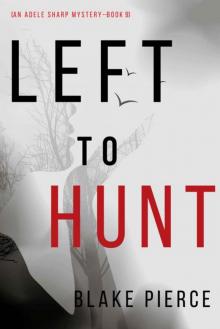 Left to Hunt (An Adele Sharp Mystery—Book Nine)
Left to Hunt (An Adele Sharp Mystery—Book Nine)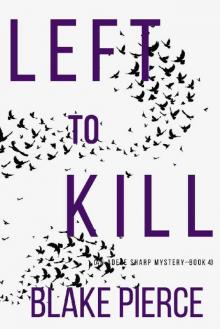 Left to Kill (An Adele Sharp Mystery—Book Four)
Left to Kill (An Adele Sharp Mystery—Book Four)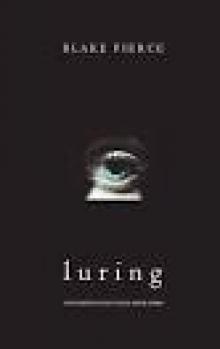 LURING
LURING If She Hid
If She Hid If She Fled
If She Fled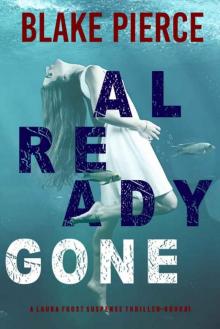 Already Gone (A Laura Frost FBI Suspense Thriller—Book 1)
Already Gone (A Laura Frost FBI Suspense Thriller—Book 1) Vengeance in Vienna
Vengeance in Vienna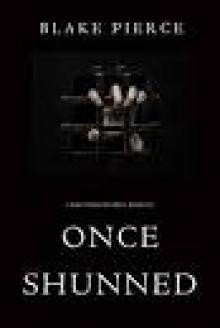 Once Shunned
Once Shunned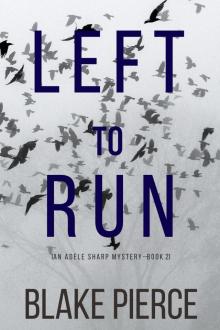 Left To Run
Left To Run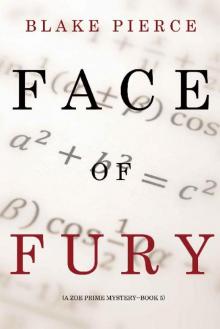 Face of Fury (A Zoe Prime Mystery--Book 5)
Face of Fury (A Zoe Prime Mystery--Book 5) Blake Pierce - Kate Wise - 5 - If She Fled
Blake Pierce - Kate Wise - 5 - If She Fled IF SHE RAN
IF SHE RAN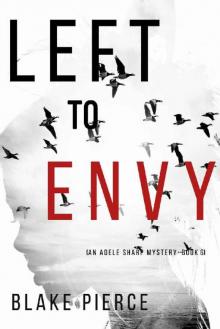 Left to Envy (An Adele Sharp Mystery—Book Six)
Left to Envy (An Adele Sharp Mystery—Book Six) Silent Neighbor
Silent Neighbor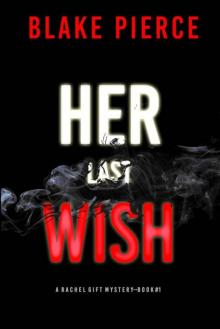 Her Last Wish (A Rachel Gift FBI Suspense Thriller—Book 1)
Her Last Wish (A Rachel Gift FBI Suspense Thriller—Book 1)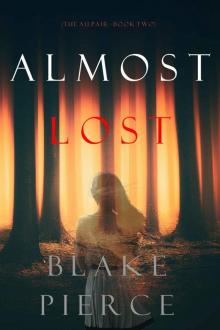 Almost Lost
Almost Lost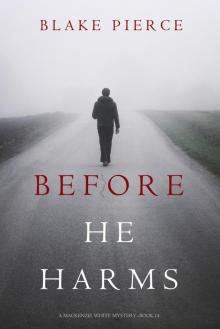 Before He Harms
Before He Harms Murder (and Baklava) (A European Voyage Cozy Mystery—Book 1)
Murder (and Baklava) (A European Voyage Cozy Mystery—Book 1)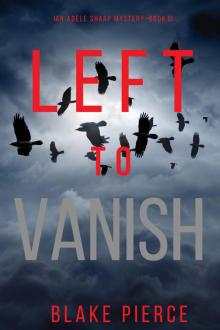 Left to Vanish (An Adele Sharp Mystery—Book Eight)
Left to Vanish (An Adele Sharp Mystery—Book Eight)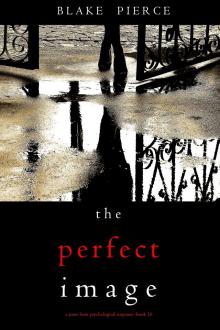 THE PERFECT IMAGE
THE PERFECT IMAGE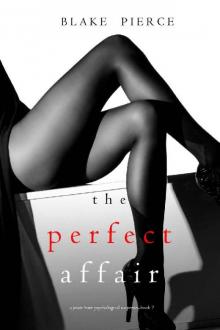 The Perfect Affair (A Jessie Hunt Psychological Suspense Thriller—Book Seven)
The Perfect Affair (A Jessie Hunt Psychological Suspense Thriller—Book Seven)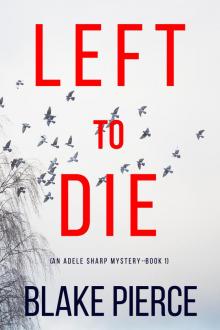 Left To Die
Left To Die BEFORE HE LAPSES
BEFORE HE LAPSES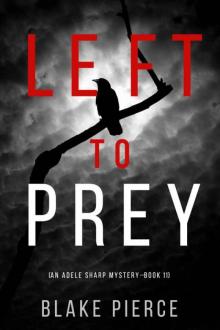 Left to Prey (An Adele Sharp Mystery—Book Eleven)
Left to Prey (An Adele Sharp Mystery—Book Eleven) The Perfect Neighbor (A Jessie Hunt Psychological Suspense Thriller—Book Nine)
The Perfect Neighbor (A Jessie Hunt Psychological Suspense Thriller—Book Nine)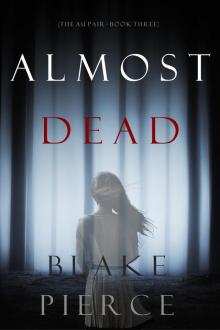 Almost Dead
Almost Dead The Perfect Wife
The Perfect Wife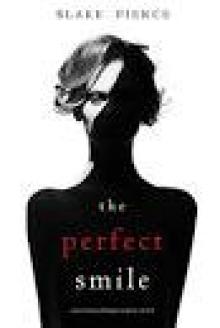 The Perfect Smile
The Perfect Smile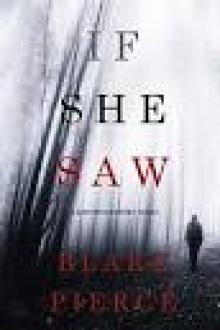 If She Saw
If She Saw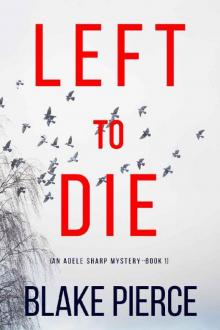 Left To Die (An Adele Sharp Mystery—Book One)
Left To Die (An Adele Sharp Mystery—Book One)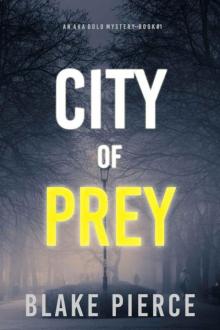 City of Prey: An Ava Gold Mystery (Book 1)
City of Prey: An Ava Gold Mystery (Book 1)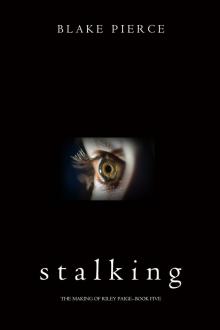 Stalking
Stalking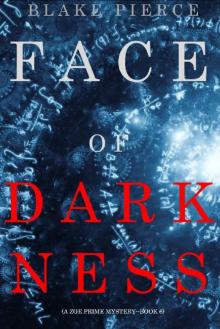 Face of Darkness (A Zoe Prime Mystery—Book 6)
Face of Darkness (A Zoe Prime Mystery—Book 6) The Perfect Mistress (A Jessie Hunt Psychological Suspense Thriller—Book Fifteen)
The Perfect Mistress (A Jessie Hunt Psychological Suspense Thriller—Book Fifteen)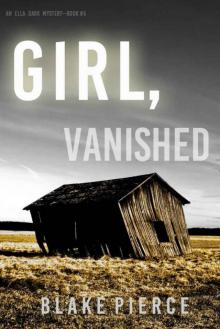 Girl, Vanished (An Ella Dark FBI Suspense Thriller—Book 5)
Girl, Vanished (An Ella Dark FBI Suspense Thriller—Book 5) The Perfect Block
The Perfect Block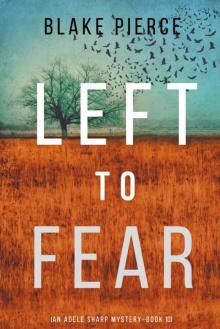 Left to Fear (An Adele Sharp Mystery—Book Ten)
Left to Fear (An Adele Sharp Mystery—Book Ten)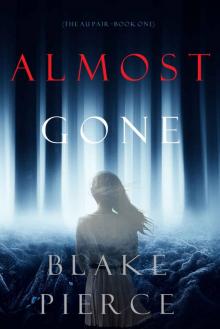 Almost Gone (The Au Pair—Book One)
Almost Gone (The Au Pair—Book One)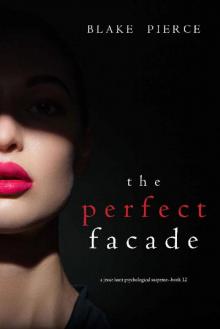 The Perfect Facade (A Jessie Hunt Psychological Suspense Thriller—Book Twelve)
The Perfect Facade (A Jessie Hunt Psychological Suspense Thriller—Book Twelve)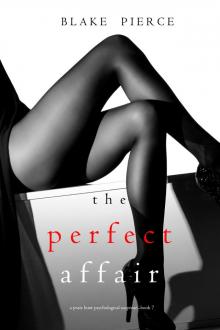 The Perfect Affair
The Perfect Affair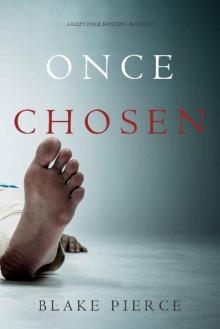 Once Chosen (A Riley Paige Mystery—Book 17)
Once Chosen (A Riley Paige Mystery—Book 17)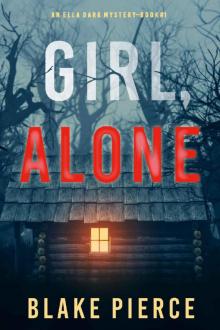 Girl, Alone (An Ella Dark FBI Suspense Thriller—Book 1)
Girl, Alone (An Ella Dark FBI Suspense Thriller—Book 1)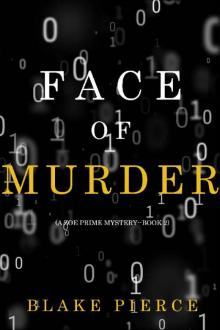 Face of Murder (A Zoe Prime Mystery—Book 2)
Face of Murder (A Zoe Prime Mystery—Book 2)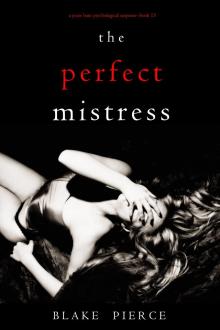 The Perfect Mistress
The Perfect Mistress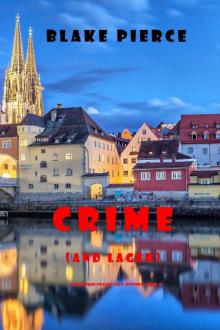 Crime (and Lager) (A European Voyage Cozy Mystery—Book 3)
Crime (and Lager) (A European Voyage Cozy Mystery—Book 3)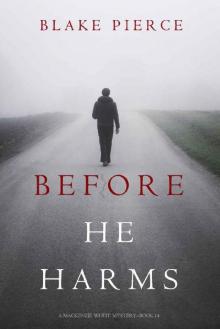 Before He Harms (A Mackenzie White Mystery—Book 14)
Before He Harms (A Mackenzie White Mystery—Book 14)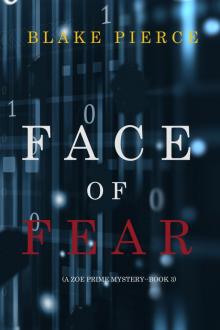 Face of Fear
Face of Fear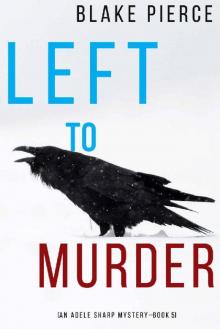 Left to Murder (An Adele Sharp Mystery—Book Five)
Left to Murder (An Adele Sharp Mystery—Book Five)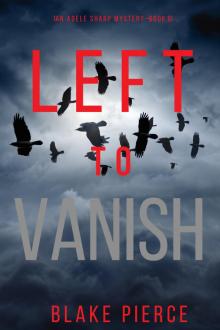 Left to Vanish
Left to Vanish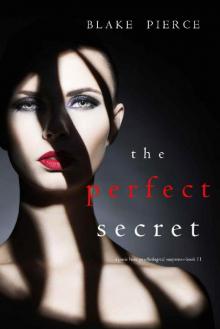 The Perfect Secret (A Jessie Hunt Psychological Suspense Thriller—Book Eleven)
The Perfect Secret (A Jessie Hunt Psychological Suspense Thriller—Book Eleven)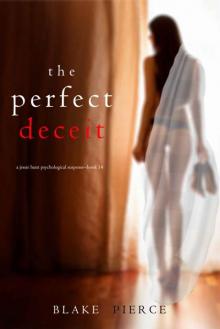 The Perfect Deceit (A Jessie Hunt Psychological Suspense Thriller—Book Fourteen)
The Perfect Deceit (A Jessie Hunt Psychological Suspense Thriller—Book Fourteen)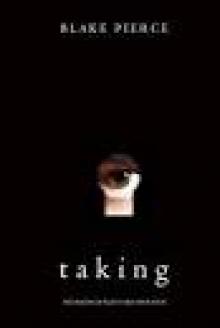 Blake Pierce - The Making of Riley Paige - 4 - Taking
Blake Pierce - The Making of Riley Paige - 4 - Taking Death (and Apple Strudel) (A European Voyage Cozy Mystery—Book 2)
Death (and Apple Strudel) (A European Voyage Cozy Mystery—Book 2) THE PERFECT HOUSE
THE PERFECT HOUSE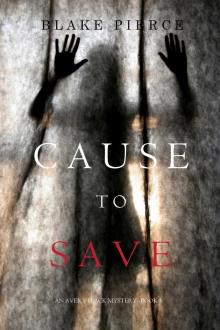 Cause to Save
Cause to Save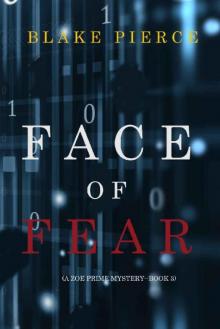 Face of Fear (A Zoe Prime Mystery—Book 3)
Face of Fear (A Zoe Prime Mystery—Book 3)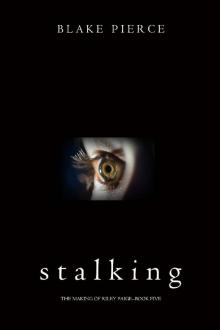 Stalking (The Making of Riley Paige—Book 5)
Stalking (The Making of Riley Paige—Book 5)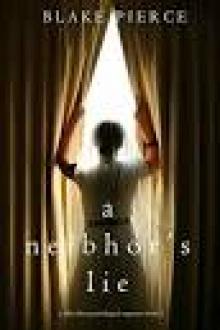 A Neighbor's Lie
A Neighbor's Lie The Perfect Neighbor
The Perfect Neighbor Once Dormant
Once Dormant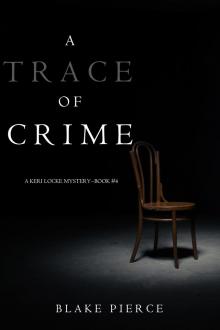 A Trace of Crime
A Trace of Crime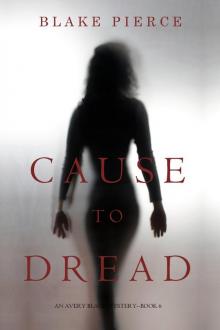 CAUSE TO DREAD
CAUSE TO DREAD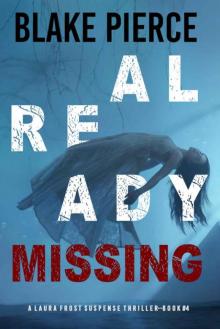 Already Missing (A Laura Frost FBI Suspense Thriller—Book 4)
Already Missing (A Laura Frost FBI Suspense Thriller—Book 4) Waiting
Waiting If She Knew
If She Knew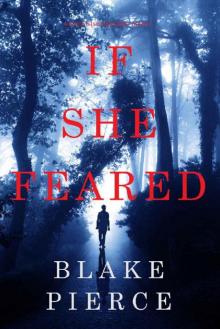 If She Feared (A Kate Wise Mystery—Book 6)
If She Feared (A Kate Wise Mystery—Book 6)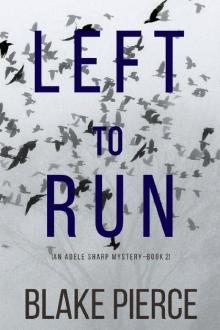 Left To Run (An Adele Sharp Mystery—Book Two)
Left To Run (An Adele Sharp Mystery—Book Two)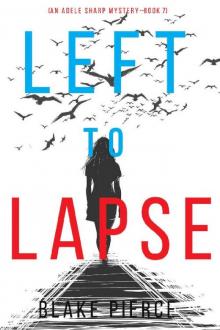 Left to Lapse (An Adele Sharp Mystery—Book Seven)
Left to Lapse (An Adele Sharp Mystery—Book Seven) If She Hid (A Kate Wise Mystery—Book 4)
If She Hid (A Kate Wise Mystery—Book 4) The Perfect Alibi (A Jessie Hunt Psychological Suspense Thriller—Book Eight)
The Perfect Alibi (A Jessie Hunt Psychological Suspense Thriller—Book Eight)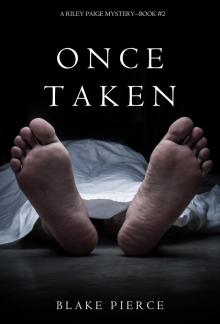 Once Taken
Once Taken Before He Envies
Before He Envies Before He Sins
Before He Sins Mackenzie White 07-Before He Sins
Mackenzie White 07-Before He Sins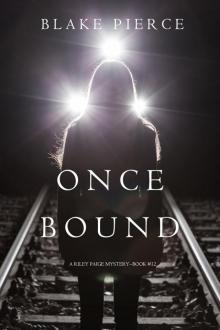 ONCE BOUND
ONCE BOUND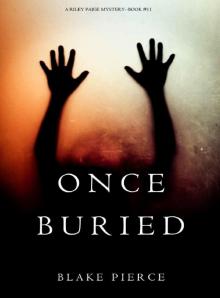 Once Buried
Once Buried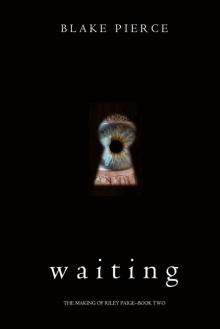 Waiting (The Making of Riley Paige—Book 2)
Waiting (The Making of Riley Paige—Book 2)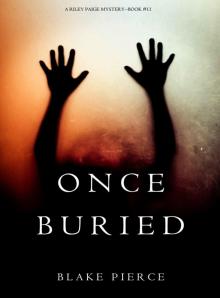 Riley Paige 11-Once Buried
Riley Paige 11-Once Buried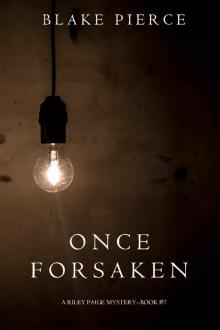 Once Forsaken (A Riley Paige Mystery—Book 7)
Once Forsaken (A Riley Paige Mystery—Book 7)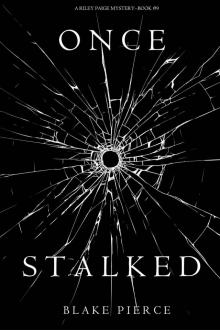 Once Stalked (A Riley Paige Mystery—Book 9)
Once Stalked (A Riley Paige Mystery—Book 9)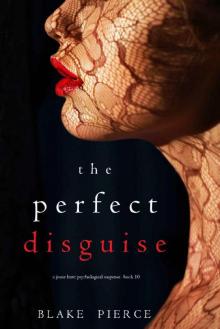 The Perfect Disguise (A Jessie Hunt Psychological Suspense Thriller—Book Ten)
The Perfect Disguise (A Jessie Hunt Psychological Suspense Thriller—Book Ten)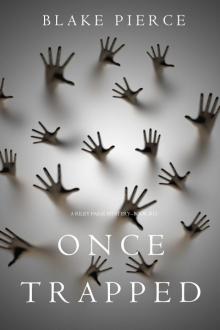 ONCE TRAPPED
ONCE TRAPPED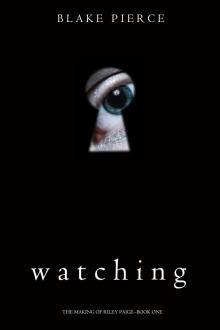 Watching
Watching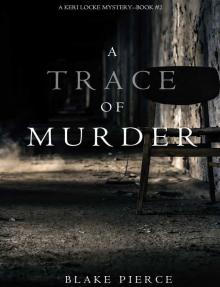 Keri Locke 02-A Trace of Muder
Keri Locke 02-A Trace of Muder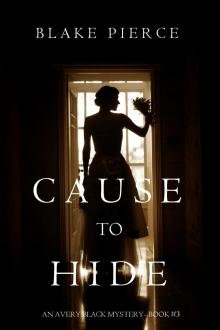 Cause to Hide
Cause to Hide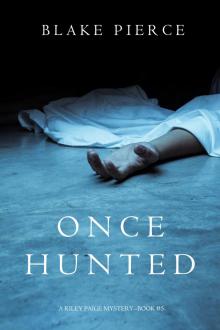 Once Hunted
Once Hunted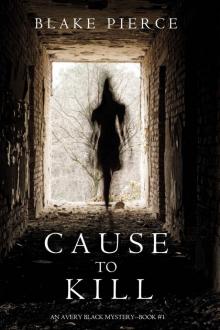 Cause to Kill (An Avery Black Mystery—Book 1)
Cause to Kill (An Avery Black Mystery—Book 1)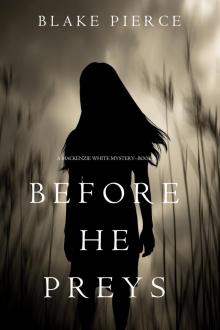 Before He Preys
Before He Preys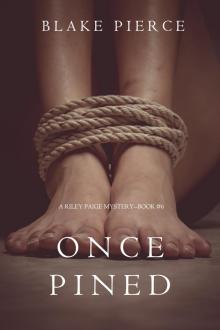 Once Pined
Once Pined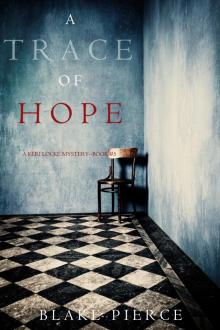 A Trace of Hope
A Trace of Hope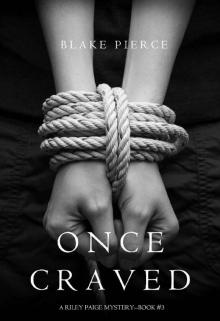 Once Craved (a Riley Paige Mystery--Book #3)
Once Craved (a Riley Paige Mystery--Book #3)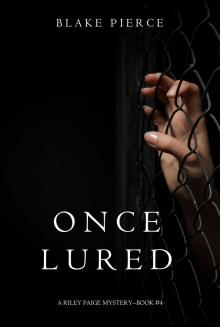 Once Lured
Once Lured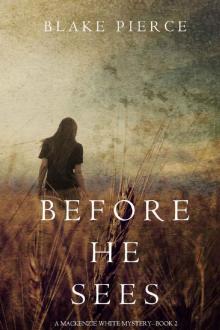 Before He Sees (A Mackenzie White Mystery—Book 2)
Before He Sees (A Mackenzie White Mystery—Book 2) Before he Kills (A Mackenzie White Mystery—Book 1)
Before he Kills (A Mackenzie White Mystery—Book 1)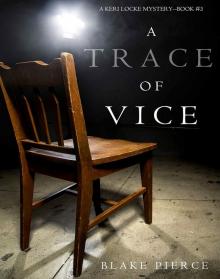 Keri Locke 03-A Trace of Vice
Keri Locke 03-A Trace of Vice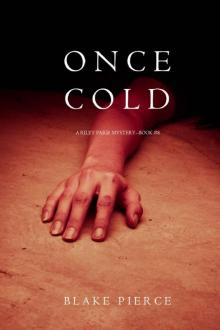 Once Cold
Once Cold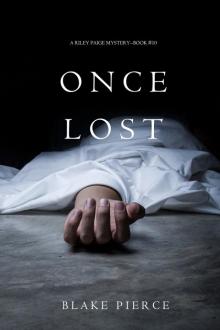 ONCE LOST
ONCE LOST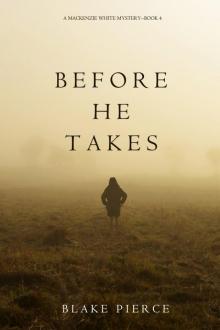 Before He Takes
Before He Takes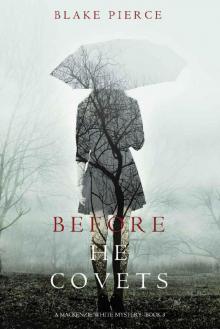 Before He Covets (A Mackenzie White Mystery—Book 3)
Before He Covets (A Mackenzie White Mystery—Book 3) BEFORE HE NEEDS
BEFORE HE NEEDS